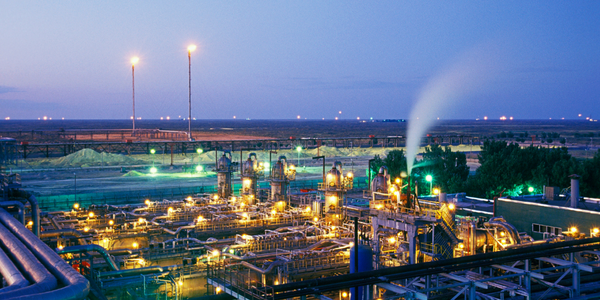Download PDF
Internet of Things Enables Smarter Oilfield Operations

Technology Category
- Analytics & Modeling - Real Time Analytics
- Application Infrastructure & Middleware - Data Exchange & Integration
- Functional Applications - Remote Monitoring & Control Systems
- Sensors - Level Sensors
- Sensors - Pressure Sensors
- Sensors - Vibration Sensors
Applicable Industries
- Oil & Gas
Applicable Functions
- Business Operation
Use Cases
- Remote Asset Management
Services
- Cloud Planning, Design & Implementation Services
The Challenge
Lower oil prices compel oilfield operators to increase efficiency. The client, a leading oilfield services provider, sought to significantly reduce the costs of pumping oil. The client owns and operates tens of thousands of electric submersible pumps (ESPs) for its global oil-and-gas customers.
About The Customer
A leading oilfield services provider wanted to reduce operational costs and increase the efficiency of tens of thousands of electric submersible pumps. The company engaged Cognizant’s expertise for all layers of the solution: sensors, server infrast
The Solution
Developed software agent to configure pumps over the network.
Migrated server infrastructure to Microsoft Azure cloud, leveraging IoT-specific services.
Integrated sensor data with the client’s decision making applications and databases.
Operational Impact
Quantitative Benefit
Related Case Studies.

Case Study
Taking Oil and Gas Exploration to the Next Level
DownUnder GeoSolutions (DUG) wanted to increase computing performance by 5 to 10 times to improve seismic processing. The solution must build on current architecture software investments without sacrificing existing software and scale computing without scaling IT infrastructure costs.

Case Study
Remote Wellhead Monitoring
Each wellhead was equipped with various sensors and meters that needed to be monitored and controlled from a central HMI, often miles away from the assets in the field. Redundant solar and wind generators were installed at each wellhead to support the electrical needs of the pumpstations, temperature meters, cameras, and cellular modules. In addition to asset management and remote control capabilities, data logging for remote surveillance and alarm notifications was a key demand from the customer. Terra Ferma’s solution needed to be power efficient, reliable, and capable of supporting high-bandwidth data-feeds. They needed a multi-link cellular connection to a central server that sustained reliable and redundant monitoring and control of flow meters, temperature sensors, power supply, and event-logging; including video and image files. This open-standard network needed to interface with the existing SCADA and proprietary network management software.

Case Study
Refinery Saves Over $700,000 with Smart Wireless
One of the largest petroleum refineries in the world is equipped to refine various types of crude oil and manufacture various grades of fuel from motor gasoline to Aviation Turbine Fuel. Due to wear and tear, eight hydrogen valves in each refinery were leaking, and each cost $1800 per ton of hydrogen vented. The plant also had leakage on nearly 30 flare control hydrocarbon valves. The refinery wanted a continuous, online monitoring system that could catch leaks early, minimize hydrogen and hydrocarbon production losses, and improve safety for maintenance.








